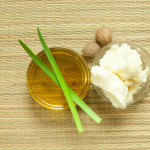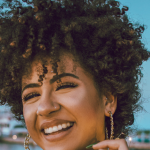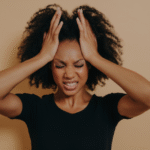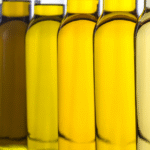I recently came across a Reddit post questioning many common beliefs about natural haircare – “So many “truths” about haircare make no sense.”
While I appreciate curiosity and critical thinking, separating misinformation from misunderstood science is essential.
So let’s unpack these points with clarity and evidence, especially for those navigating the natural hair journey.
A growing wave of people is rightfully questioning traditional haircare “truths,” especially in the natural hair community.
But in an industry full of anecdotal advice, it’s important to distinguish between myth, misunderstanding, and science-backed fact.
In this article, let’s break down some haircare claims and what the science and experience behind natural hair say.
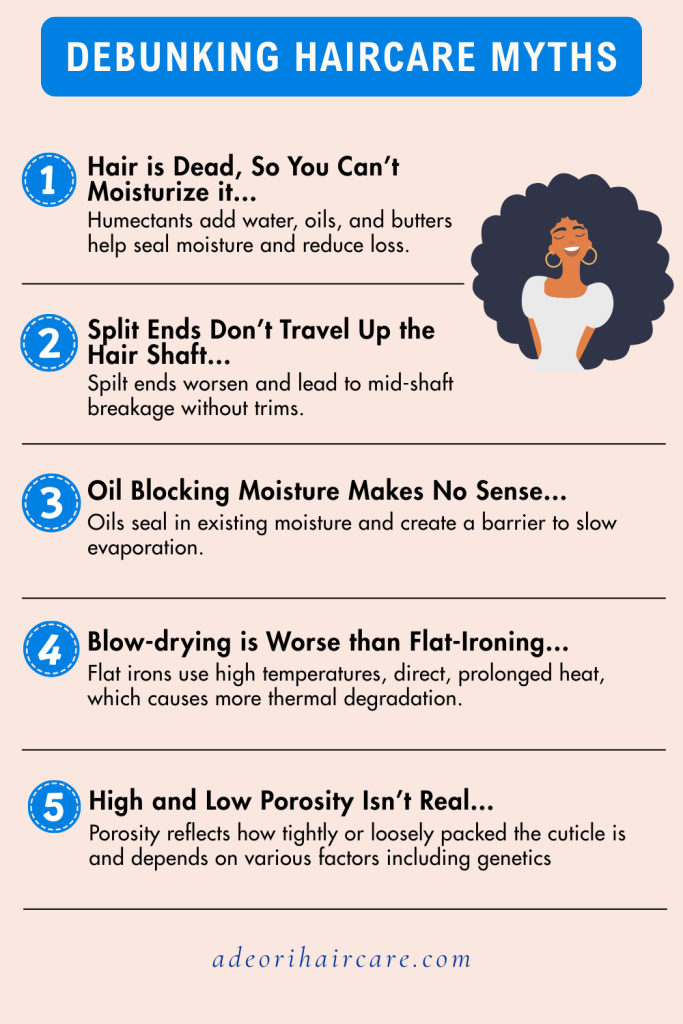
5 Inaccurate Haircare Myths Debunked
Claim #1: Hair is Dead, So You Can’t Moisturize it
Yes, the hair shaft is biologically dead, but that doesn’t make it inert.
Moisturizing natural hair means hydrating the strand externally and protecting it from environmental dryness.
- Water is the true moisturizer.
- Humectants like glycerin or panthenol draw in moisture.
- Oils and butters help seal moisture and reduce transepidermal water loss (TEWL).
Reference: Robbins, C.R. (2012). Chemical and Physical Behavior of Human Hair. Springer. This textbook, widely used in cosmetic chemistry, describes how water absorption affects hair fiber diameter and elasticity.
Claim #2. Split Ends Don’t Travel Up the Hair Shaft
Split ends may not “move” like cracks, but they worsen under tension, manipulation, and friction, leading to mid-shaft breakage.
- Regular trimming prevents damage from compounding.
- Untrimmed splits weaken strands and increase tangling, which causes more breakage.
Reference: Kamath, Y.K., & Hornby, S.B. (2004). “Influence of Fiber Breakage on Hair Damage.” Journal of Cosmetic Science, 55(1), 95–109. This study confirms how mechanical stress (like brushing or styling) increases structural damage in hair with existing splits.
Claim #3. Oil Blocking Moisture Makes No Sense
Oils do not add moisture; they seal in what’s already present and create a barrier that slows evaporation.
- Applied before moisture, oils may block hydration.
- Applied after hydration, oils can reduce moisture loss and improve softness.
Reference: Rele, A.S., & Mohile, R.B. (2003). “Effect of Mineral Oil, Sunflower Oil, and Coconut Oil on Prevention of Hair Damage.” Journal of Cosmetic Science, 54(2), 175–192. This landmark study showed that coconut oil penetrates the hair shaft, while others form external barriers.
Claim #4. Blow-drying is Worse than Flat-Ironing
The type of heat and how it’s applied are more important than the tool.
- Blow-drying on low heat with a tension method is gentler than flat-ironing at high temperatures.
- Flat irons cause more thermal degradation due to direct and prolonged contact.
Reference: Lee, W.S., & Lee, I.W. (2002). “Hair Shaft Damage from Heat and Drying.” Annals of Dermatology, 14(2), 67–71. This study shows how flat ironing at 200–230°C significantly degrades the hair’s cuticle, while blow-drying at moderate temperatures causes less damage.
Claim #5. High and Low Porosity Isn’t Real. Kinky Hair is Always High Porosity
Porosity is a measurable property. It reflects how open or tightly packed the hair cuticle is, which affects moisture absorption and retention.
- Hair damage (chemical or heat) increases porosity.
- Natural porosity also varies by genetics, not just curl type.
Reference: Swift, J.A. (1997). “Human Hair Cuticle: Biologically Unique Fibre Structure and its Formation.” International Journal of Cosmetic Science, 19(1), 1–9. This study outlines how cuticle structure affects porosity and how it varies by ethnicity and treatment history.
Final Thoughts on These Inaccuracies
Hair is complex, especially natural and textured hair. While it’s good to question mainstream hair advice, let’s not throw out valid science.
Many practices passed down through generations in Black communities, such as using butters and oils, protective styling, and moisturizing regimens, are not just traditions but have valid, observable benefits.
By pairing experience with evidence, we can counter misinformation and promote smarter, healthier haircare for all.
Stay curious, but also stay informed.
Abi is the founder behind Ade Ori Hair Care and the Healthy Natural Hair Products ecosystem, a platform trusted by women seeking clean, effective solutions for textured hair. With over 10 years of hands-on experience, she combines research-backed insight, ingredient transparency, and natural formulations to help women nourish their curls from the inside out. She’s passionate about empowering women through DIY tools, holistic hair education, and a community-first approach. Learn more here.

